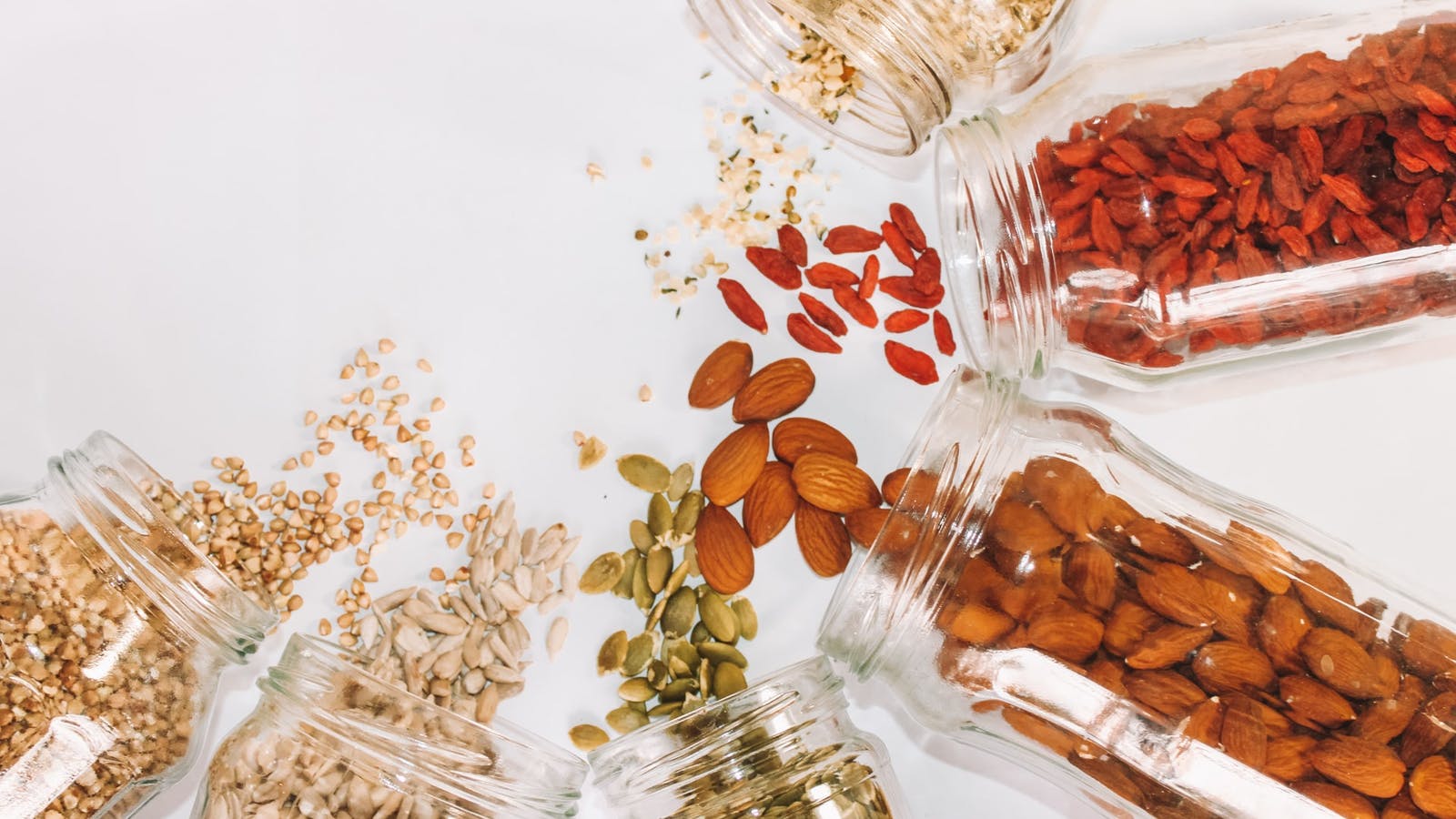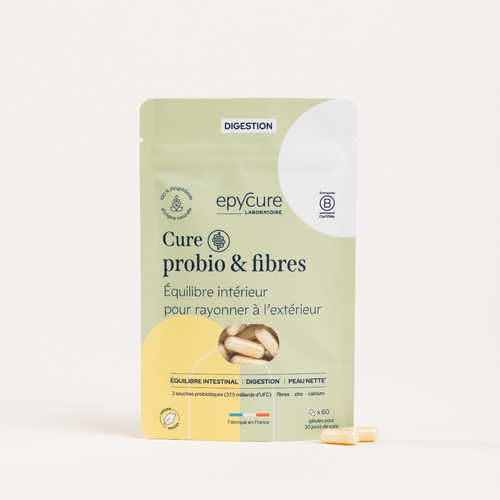Do you regularly suffer from stomach discomfort caused by stomach aches and bloating, irregularities in your stools? Intestinal transit disorders correspond to a decrease or increase in intestinal motility (ability to move food through the digestive system). These disorders are most often characterized by problems with constipation or diarrhea. This may be a sign that your intestine is experiencing some dysfunction. We consider that the intestine is regulated when the evacuation of stools occurs between 3 times a day and 3 times a week. Below this frequency, occasional or chronic constipation may be suspected. If, on the contrary, the frequency is higher, more than 3 times a day and the stools are liquid, we speak of diarrhea.
These can have very varied causes whose origin must be sought (questionable food associations, imbalance of intestinal flora, food intolerances, etc.). There are many methods to regulate our transit in an effective and sustainable way, such as eating at set times (which helps give our body habits), avoiding snacking between meals and also avoiding skipping meals . In this article, Angélique has selected 5 products that could help you regulate it.
1. Flax seeds
There are almost 200 species of flax and for our food , we must choose between brown flax and blond flax. Flax seeds are essentially composed of vegetable proteins (20%), fiber (27%) but also omega-3 fatty acids (25%).
They are incredibly rich in soluble and insoluble fiber which are essential nutrients and extremely important for regulating digestion, blood sugar and metabolic health. Flax seeds therefore facilitate intestinal transit and will allow you to relieve your discomfort. It is a product that contains dietary fiber (in fact, 2g of flax seeds contain on average a spoonful of fiber ), they reduce the absorption of sugars by the body and, as a result, we can consider that it is a blood sugar regulating superfood.
They represent a real solution for people with intestinal disorders. Flaxseeds are also very easy to combine with many everyday foods such as soups, raw vegetables or vegetables. In fact, they are also generally added to culinary preparations such as breads, cakes or others. You can also replace eggs in cakes by mixing seeds with a little water. Whole flaxseeds, like lentils, rice and wheat, can be stored intact at room temperature without problem.
It is also possible to consume seed oil as part of a balanced diet . In this case, it must be included in small portions as is in preparations or after cooking because flaxseed oil is not suitable for cooking and cannot withstand heat.
2. Apples
If you are fond of fruit, know that apples promote intestinal transit . Indeed, they contain a significant number of minerals, nutrients, vitamins and offer the opportunity to maintain the proper functioning of the body all day long. In addition, apples and pears are foods rich in fiber , which facilitate intestinal transit and reduce the risk of constipation . To do this, you have to eat it raw with the skin. Thanks to the high content of soluble fiber commonly called pectin, apples are your best ally in regaining your intestinal balance. The pectin it contains is a soluble fiber which can indeed retain up to 20 times its volume of water.
Well washed, the apple is eaten as is, with the skin, because it contains a lot of vitamin C. To cleanse your intestines and your entire body , you can eat three to four apples per day, at least one hour before each meal . . Don’t hesitate to use apples in your desserts: apple and raspberry tarts, compotes, clafoutis, etc.
3. Grapes and raisins
Thanks to its wonderful properties, grapes act as a natural laxative just like prunes . They also help our cardiovascular system to be healthy and can reduce bad cholesterol. Grapes contain a wide variety of essential acids, which allow our entire body to function optimally. In addition, they have almost no calories , they take care of our arteries and our heart and also help improve the cognitive functions of our body.
As for raisins, they are very concentrated in trace elements such as calcium, iron (as a remedy against anemia), magnesium ( stress and anxiety) and even potassium (hypertension). It is an excellent source of vitamins . Raisins are also very rich in fiber , which acts on the digestive system. This is explained by the simple fact that a single grape contains 1g of fiber . Therefore, you can consume them to improve your digestion . They will allow you to relieve your stomach aches very effectively. They help clean the intestine and form bulkier stools. They also prevent colon cancer . Raisins also contain sugars like sorbitol and fructan. The latter act as natural laxatives.
The little bonus: raisins are available all year round, easy to take with you and easy to store! You can eat them in small portions for breakfast with your cereal, wholemeal bread and a banana.
4. Oranges
Oranges specifically produce vitamin C. Many people are unaware that they also contain a lot of fiber . To benefit from these, it is important that you avoid consuming oranges in the form of juice. It is up to you to eat the whole natural fruit. In addition to being a powerful antioxidant, thanks to its vitamin C content, citrus fruits strengthen the immune system and have depurative, analgesic and healing properties.
Be careful, they are also very acidic so avoid on an empty stomach. On the other hand, orange contains citric acid, which gives it depurative properties. It facilitates digestion and stimulates detoxification of the liver and pancreas.
Mandarin is a citrus fruit. It therefore contains a large quantity of vitamin C. This vitamin stimulates the formation of antibodies in the body and combats the harmful effects of certain harmful substances. Moreover, Mandarin contains a good amount of fiber which helps fight against digestive problems, excess cholesterol and cardiovascular diseases.
5. Yogurts
Rich in proteins and especially probiotics, yogurt is very popular for its healthy and nutritious side. Indeed, those who frequently consume yogurt can confirm this. It is an integral part of products that make digestion very simple. The probiotic bacteria lactobacillus that yogurt contains is responsible for facilitating intestinal movements. So, it is a very good alternative for people who often encounter these kinds of problems.
If you digest cow's milk poorly, there are yogurts made from goat's or sheep's milk that are more digestible. In addition, clinical tests provide more and more evidence of the health benefits of consuming yogurt. For example, there is evidence that bacteria in yogurt facilitates the digestion of lactose through the enzyme β-galactosidase, allowing people who digest lactose poorly to eat yogurt.
Regular consumption of these foods will allow you to regain normal transit and thus improve your health because it will boost your body but also your energy. We must also not forget that the secret to good transit is above all a varied and healthy diet .
In addition to consuming these different foods that we have just recommended, we suggest that you take into account the following recommendations which will help improve your intestine over time:
- Monitor your stress and anxiety levels
- Increase your water intake
- Avoid large meals and take time to eat and digest
- Do physical exercise and sport on a regular basis
- Avoid consuming too much milk and foods containing lactose
Depending on your needs and preferences, the virtues of these five foods may be the solution to remedy your intestinal problems. Find out your needs by answering our questionnaire .





